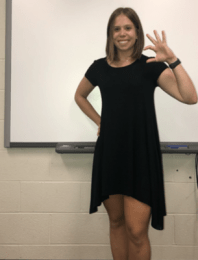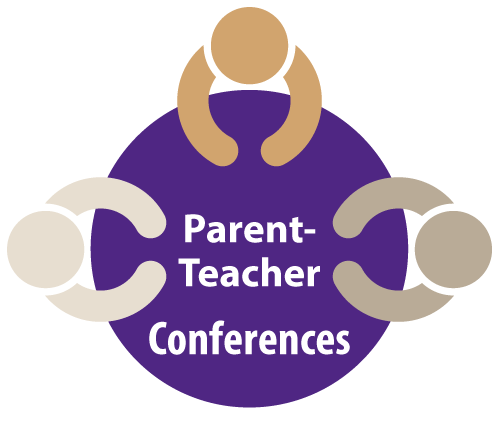Lori Goodson, Editor
Mary Hammel, Technical Editor
Category: September 2020
In the Classroom: Delaney Taylor

Name: Delaney Taylor
Location: Emporia USD 253, Emporia, KS
Class/content area taught: Special Education–Intensive Resource
What are you most excited about with your new career? I am eager to grow as an individual in my career as a teacher. This is the first time I have felt fully independent and I am looking forward to building confidence in myself!
What do you enjoy most about teaching? I enjoy making connections with students over topics that are not related to content. Oftentimes, students are being pressed down with instruction and content by their teachers. My favorite part of teaching is asking students questions about their lives outside of school! Specifically, I look forward to making connections with students over their taste in music.
In what ways has your school/district supported you? Throughout the months of June and July, my principal hosted 3-4 meetings a month for all employees to tune into. The meetings were in place for extra communication regarding COVID-19. This helped ease my nerves with going into my first year of teaching during a pandemic!
What are some specific things you believe KSU especially helped prepare you for your new career? One specific thing that was influential for me that I learned from my time at KSU is the aspect of collaboration. I was taught the importance of collaboration and how it positively improves relationships between teachers and students. Most of my classes were based around working in groups and collaborating with each other. I am thankful for this, because I will be spending the rest of my career collaborating with others.
Are there specifics about your background that make teaching the perfect fit for you? I grew up with my mom being a 3rd grade and 5th grade teacher at the elementary school in Paola, KS. I spent most of my afternoons after school in her classroom writing on the marker board and the smart board when they came around! In addition, my older sister went into teaching and she is a 5th grade teacher in the Emporia school district, as well!
Suggestions/encouragement for new teachers: Ensure that you have a strong support system within the school district or school you teach in that you can go to for help. Build mutual trust between coworkers and your administrators. Remain calm, listen with intention, and always smile!
Bonus question, thanks to the Pandemic: How has the Pandemic shaped your classroom—the environment, safety precautions, etc.? How has it affected you as a new teacher? Overall, the pandemic has affected me as a new teacher in a variety of ways. The hardest part has been the unknown of what is going to happen! However, I have had comfort knowing that teachers all across the nation are experiencing the same emotions that I am. I will be teaching in a hybrid classroom this year, with some of my students being onsite and others will be remote. Of course, students and teachers will be required to wear masks, keep 6
feet of distance, and practice proper hand washing. Luckily, I will only have a maximum of 8 students in my classroom at a time, so placing desks 6 feet away was not a hard task for me. We are all trying to stay safe by following all safety precautions in hope that one day we can return back to normal!
A little online help…check these out
You’re an EdCat for life!

As you move through the school year, don’t miss a thing! Be a part of EdCATS!
We want to help beginning and early career teachers like you thrive in your career! Check out #WeAreEdCats for teaching tips and to stay in touch with the COE! Check out the website at coe.k-state.edu/forever-edcats.
Make connections through a variety of school duties
 Outside your classroom, you’ll find that you’re asked, or possibly required, to take on other duties around your school. Some of the more common tasks: bus duty (before and/or after school), gym supervision (before and/or after school), lunch supervision, and recess. Plus there are all the club sponsorships available at the various grade levels.
Outside your classroom, you’ll find that you’re asked, or possibly required, to take on other duties around your school. Some of the more common tasks: bus duty (before and/or after school), gym supervision (before and/or after school), lunch supervision, and recess. Plus there are all the club sponsorships available at the various grade levels.
Before you say no—or at least grumble a little about it—look at the opportunities these extra duties provide.
At the middle level, you might find yourself supervising bus duty; that can give you a chance to hang around the elementary students as they leap off the last step on the bus, headed home after a busy day. You may end up tying a very small shoe now and then or helping adjust a tiny mitten in the wintertime, but you’ll also flash back to your own elementary school days…and remember just where your own students came from not so many years ago.
At the elementary level, you may get to see some of your students bounce into their parents’ arms at the end of the school day—bubbling about what they did in your class today.
At the high school, the bubbling may be minimal, but you’ll be in a more relaxed atmosphere as your students climb into their cars and head out for the day.
Lunch duty can provide an opportunity for you to mingle with the student body—some students you may not even have in class. It’ll give you a chance to visit with them—about food, interests, and…yes…even school-related matters.
All of these opportunities can be powerful relationship builders for you and your students, especially when you’re a new teacher trying to make connections and get comfortable in the environment.
Make the most of them.
Whether you’re online or face to face, be set for a sub
 In your first few weeks of teaching, you’ve probably not even thought of the possibility that you might miss a day of teaching. However, the time will come—due to your being sick or an illness in the family, an emergency, or even a professional development opportunity supported by your school—that you will be absent from your classroom for a day or more.
In your first few weeks of teaching, you’ve probably not even thought of the possibility that you might miss a day of teaching. However, the time will come—due to your being sick or an illness in the family, an emergency, or even a professional development opportunity supported by your school—that you will be absent from your classroom for a day or more.
And, since some of you are teaching face to face, while others are teaching virtually or a hybrid of the two, it’s more important than ever to plan ahead.
It’s better to be prepared for it, rather than wait for that opportunity to present itself—possibly as stomach flu at 4 in the morning.
Some schools have folders that their teachers use for substitute plans, or possibly a sheet that includes the basic information of your teaching duties. But you’ll want to be a little more prepared than that, so you’ll probably want to set up your own Substitute Plans folder and keep in your desk in a specific place.
Consider adding the following to your personal “sub” folder:
- Your daily schedule (including times, lunch and plan periods, etc.)
- Lists (and directions) of any other rooms where your substitute would need to be.
- General school daily schedule (hours/blocks/etc.).
- General school lunch schedule.
- Emergency drill plans (map, directions, etc.)
- A list of key contacts and their telephone extension numbers.
- Easy access to class rosters (with notes of any special needs or concerns for specific students).
- Seating charts, if applicable.
- A brief sentence summarizing the purpose of the class.
- A list of information about each class—approximate number of students, any paraprofessionals or other educators who assist with the class.
- For classes with older students, a list of responsible, go-to students they can count on for help.
- Your phone number or email if they should need to contact you.
- Blank notebook pages—so they can easily leave you notes about the classes and any concerns or updates that they’d like to share.
- A list of where they can find key materials.
- Some untimely—but educationally appropriate—assignments that the substitute can use to fill time, as needed.
By having this general information already prepared, when the time comes for you to be absent, you’ll only need to write the specific activities for that day.
For those daily activities, if your absence is unplanned due to an illness or emergency, email the specific directions to the office assistant and to another teacher, as a backup. Be sure to point out the location of your substitute folder. Otherwise, have a copy printed out ahead of time and left on your desk.
The easier you can make it for the substitute, the easier your return will be…and the less worrying you’ll do during your absence. Trust me, the stomach flu…or the PD opportunity…will demand ALL of your attention!
Procedures matter…even in a pandemic
You’ve heard it before, but after a month of teaching, you might want a quick reminder. Here are a few ideas on why procedures can help you have a more effective classroom so you can get to the task of teaching, rather than disciplining. There’s plenty on the Internet about this, but here are a couple of favorites that make some key points for whatever grade level you’re teaching:
Communication key to successful conferences
 Even the most veteran of teachers can find Parent/Teacher conferences a little uncomfortable, but being prepared will help you make the most of this important opportunity. So let’s get prepared by considering the following:
Even the most veteran of teachers can find Parent/Teacher conferences a little uncomfortable, but being prepared will help you make the most of this important opportunity. So let’s get prepared by considering the following:
BEFORE THE CONFERENCES
- Have meaningful grades in your grade book so you can talk about the child’s progress.
- Take time to get to know each student so you can demonstrate at the conference that you’ve made a personal connection with the student.
- Learn as much as possible about the process for parent/teacher conferences. Some schools require that the student take an active part in the discussion, so make sure your students are prepared, as well.
- Compile (or have your students compile) folders of their work to share with their parents/guardians. Include writings, assignments, assessments, and artwork to showcase their learning so far this year. You may want to add other items, such as grades, assessment results, and other items to share, as well.
- Find out what materials and information teachers traditionally share at the conferences, since it can vary greatly from school to school and district to district.
- Know the details of the conferences—when, where, guides on how much time to spend with each student’s parent/guardian, when to suggest an individual meeting to have more extensive discussions, etc.
- Prepare a flier with important upcoming dates, a list of needed classroom items if they would like to contribute, and a brief look at upcoming important dates to help them be involved in their student’s education.
AT THE CONFERENCES
- Step No. 1: Smile and introduce yourself.
- Realize that the parents/guardians are taking time from their busy schedule to visit with the child’s teachers. Since we encourage family involvement in their child’s education, we need to appreciate their efforts. Be sure to thank them for attending.
- Make comments about concerns and accomplishments specific to that student.
- Provide specific ideas on areas where you’d like to see the student improve; provide specific suggestions on how the parent/guardian can help make that happen.
- Be prepared to answer if a parent or guardian asks when he or she can do to help. That’s a golden opportunity you don’t want to overlook. Many times parents want to help, but they’re unsure just how to do that.
- Make sure they know you value their input; provide additional contact information, and encourage them to contact you with any concerns or ideas.
- Keep track of which students have individuals attending the conference on their behalf. Many schools provide a sign-in sheet; if not, consider creating a roster so you’re aware of who attended and who didn’t.
- Review the list and consider making a personal effort to get parents/guardians of students you’re especially concerned about to set up an individual appointment with you.
- Following the conferences, briefly thank your students for having their parents/guardians attend the conferences. However, don’t overdo this; in many cases, the students can’t help it if the adults in their lives decline the opportunity to attend the conferences.
You are missed; send me an update!
What’s up?
Why don’t you send us a photo of you at work in your classroom! Or, do you have a question about classroom procedures? A suggestion for a topic we should address in Before the Bell? Want to add your name to our mailing list? Or provide a different email for our list? At the very least, just email and say hi!
And thanks to all of those who have emailed! We love the updates!
Early-career teachers, feel free to jump in and offer suggestions to those who are following your career choice!
We’d love to hear from you, so please email us at lagoodson@k-state.edu.
Go, COE Cats!
